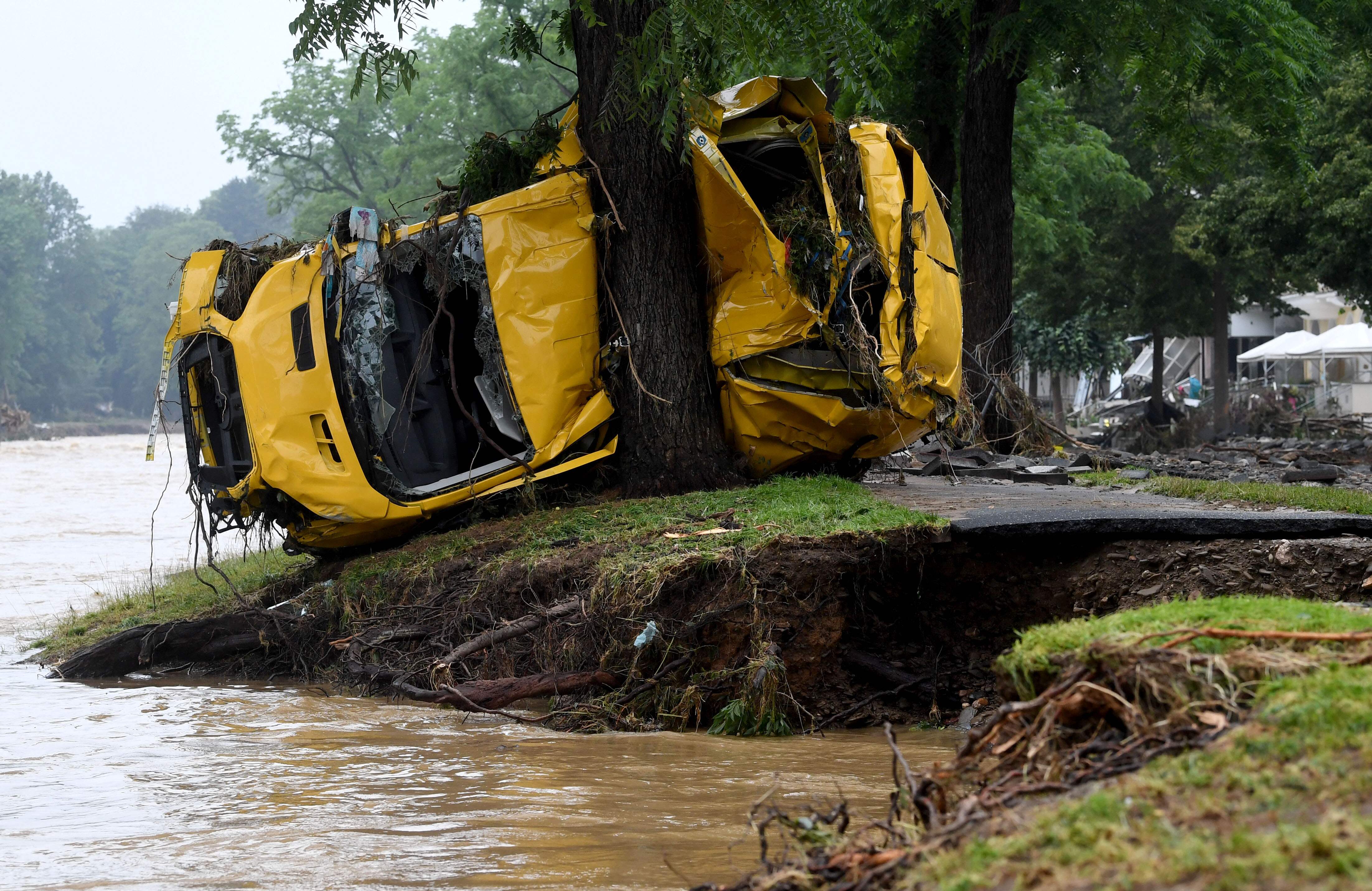The effects of climate change have arrived in Europe – our way of life will have to change
Editorial: The weather events of the past week add humility to western calls for action – let’s hope for global urgency in the task ahead

The floods in parts of western Germany, the Netherlands and Belgium have dominated the headlines, not least because they have cost 120 lives and counting, an extraordinary figure for a weather event in some of the most advanced societies in the world. Nature has proved more powerful, once again, disrupting power supplies and mobile phone signals as well as destroying property. It is the same kind of phenomenon that has been observed around the world – the burning of California, Australia, even Siberia in recent times, for example.
Elsewhere, communities in low-lying states such as Bangladesh, the Maldives and micro-states in the Pacific are also having to live with the consequences of the warming of the planet. Mercifully, there are few voices now suggesting that climate change is some kind of hoax, or that the increase in emissions of carbon dioxide are not to do with human activity, or which suggest that trying to restrain greenhouse gas release is just a Chinese plot to destroy the west. If proof that warmer air can carry more moisture is required, it is only necessary to look out of the window.
The intellectual argument for action to help prevent further catastrophic climate change, in other words, has been made – and won – long ago. People in the west generally accept the reality of what is happening, and increasingly, if sometimes reluctantly, agree that our way of life will have to change if we are serious about the climate crisis. The scientific evidence and reasoning is robust, and widely respected. Only the likes of Donald Trump are still denying and evading the facts.
However, for those who live in this relatively small, densely populated corner of the planet, Europe, there are some who believe climate change is “coming home” – if that’s not too trite an expression. Now it seems to be affecting us, in places a relatively short plane or railway ride away. Familiar landscapes are being devastated, normally temperate climates turned semi-tropical, and the emergency services and citizens of European states cannot cope when rivers rise six to eight metres above their normal height. Climate change has made its long predicted, unwelcome and dramatic debut. We are helpless before it.
The warnings have been ringing in our ears for decades – since the 1980s, in fact, when scientists first began to comprehend the consequences of past industrialisation. Western Europe was, after all, the crucible of the first industrial revolution, and, to that degree, bears its share of responsibility for the pollution and environmental degradation that followed.
The British, Germans and others long since felled their forests and sacrificed their rivers and lakes to rapid economic growth and rising living standards (if the damage to the environment is discounted). It can be no great surprise if the governments of states such as Brazil or Indonesia declare that it is their turn to follow the model of industrialisation pioneered by Europe, America, Japan and, in its most extreme and careless form, the old Soviet Union. The west is in a poor position to lecture the developing world about the downside of economic growth, but these weather events at least add some humility to western calls for action.
The floods, then, add a sense of immediacy and urgency to the sometimes remote-seeming climate crisis. They should, like parallel events elsewhere, persuade more governments to do more to save more lives, not just in the 22nd century and beyond, but in the here and now. The Cop26 conference in Glasgow provides the next best opportunity for the world to do something about its plight. The scenes of devastation on television screens are more impactful than Greta Thunberg or David Attenborough, and they are concentrating minds everywhere.



Join our commenting forum
Join thought-provoking conversations, follow other Independent readers and see their replies
Comments